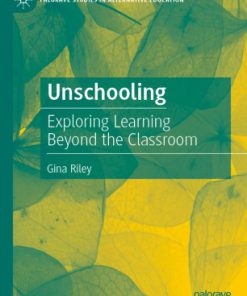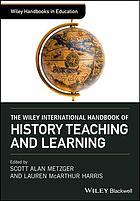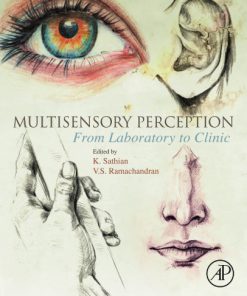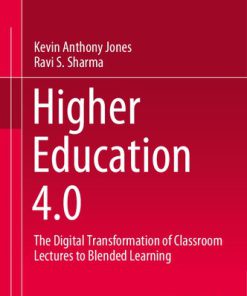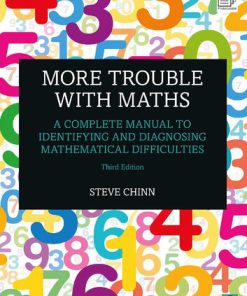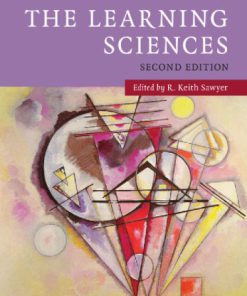International Handbook of Mathematical Learning Difficulties From the Laboratory to the Classroom 1st Edition by Annemarie Fritz,Vitor Geraldi Haase,Pekka Rasanen ISBN 3319971476 978-3319971476
$50.00 Original price was: $50.00.$25.00Current price is: $25.00.
International Handbook of Mathematical Learning Difficulties From the Laboratory to the Classroom 1st Edition by Annemarie Fritz, Vitor Geraldi Haase, Pekka Räsänen – Ebook PDF Instant Download/Delivery: 3319971476, 978-3319971476
Full download International Handbook of Mathematical Learning Difficulties From the Laboratory to the Classroom 1st Edition after payment
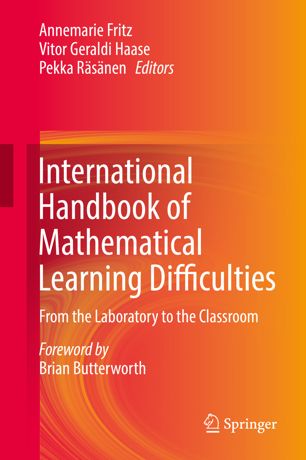
Product details:
ISBN 10: 3319971476
ISBN 13: 978-3319971476
Author: Annemarie Fritz, Vitor Geraldi Haase, Pekka Räsänen
This comprehensive volume provides teachers, researchers and education professionals with cutting edge knowledge developed in the last decades by the educational, behavioural and neurosciences, integrating cognitive, developmental and socioeconomic approaches to deal with the problems children face in learning mathematics.
The neurocognitive mechanisms and the cognitive processes underlying acquisition of arithmetic abilities and their significance for education have been the subject of intense research in the last few decades, but the most part of this research has been conducted in non-applied settings and there’s still a deep discrepancy between the level of scientific knowledge and its implementation into actual educational settings. Now it’s time to bring the results from the laboratory to the classroom.
Apart from bringing the theoretical discussions to educational settings, the volume presents a wide range of methods for early detection of children with risks in mathematics learning and strategies to develop effective interventions based on innovative cognitive test instruments. It also provides insights to translate research knowledge into public policies in order to address socioeconomic issues. And it does so from an international perspective, dedicating a whole section to the cultural diversity of mathematics learning difficulties in different parts of the world.
All of this makes the International Handbook of Mathematical Learning Difficulties an essential tool for those involved in the daily struggle to prepare the future generations to succeed in the global knowledge society.
Table of contents:
-
Neurocognitive perspective on numerical development
-
Everyday context and mathematics learning: on the role of spontaneous mathematical focusing tendencies in the development of numeracy
-
Competence Models as a Basis for Defining, Understanding, and Diagnosing Students’ Mathematical Competences
-
Mathematical performance amongst the poor: Comparative performance across developing countries
-
Didactics as source and remedy of mathematics learning difficulties
-
Development of number understanding: different theoretical perspectives
-
Special needs education in mathematics: The case of Nordic countries
-
Math learning and its difficulties in the Middle European countries
-
Mathematics learning and its difficulties in Eastern European countries
-
Maths Learning and its Difficulties in Southern European Countries
-
Mathematics Learning Difficulties in the United States: Current Issues in Screening and Intervention
-
Latin-American Countries
-
Mathematics Learning and its difficulties: the cases of Chile and Uruguay
-
Mathematical inclusion in Southern Africa
-
Math Learning Difficulties in Australia
-
Mathematical learning and the difficulties in Taiwan: insights from educational practice
-
Maths Learning and its Difficulties in Israel
-
Learning Difficulties and Disabilities in Mathematics: Indian Scenario
-
Discussion of Section 2: Math learning difficulties around the world
-
Neurobiological origins of mathematical learning disabilities or dyscalculia: A review of brain imaging data
-
Genetics of Dyscalculia 1: In search of genes
-
Genetics of dyscalculia 2: In search of endophenotypes
-
Comorbidity and differential diagnosis of dyscalculia and ADHD
-
Working memory and mathematical learning
-
The relation between spatial reasoning and mathematics achievement in children with mathematics learning difficulties
-
The language dimension of mathematical difficulties
-
Motivational and math anxiety perspective for mathematical learning and learning difficulties
-
Math & Emotions: The Case of Math Anxiety
-
Cognitive and Motivational Underpinnings of Mathematical Learning Difficulties: A Discussion
-
Counting and Basic Numerical Skills
-
Multi-digit Addition, Subtraction, Multiplication, and Division Strategies
-
Development of a sustainable place value understanding
-
Using Schema-Based Instruction to Improve Students’ Mathematical Word Problem Solving Performance
-
Geometry
-
Understanding Rational Numbers – Obstacles for Learners With and Without Mathematical Learning Difficulties
-
Assessing mathematical competence and performance: Quality characteristics, approaches, and research trends
-
Diagnostics of dyscalculia
-
Three Frameworks for Assessing Responsiveness to Instruction
-
Technology-based diagnostic assessments for identifying early learning difficulties in mathematics
-
Technology-based diagnostic assessments for identifying early learning difficulties in mathematics (duplicate title noted)
-
Perspectives to technology-enhanced-learning and teaching in mathematical learning difficulties
-
Executive Function and Early Math Learning Difficulties
-
Children’s mathematical difficulties: some contributory factors and interventions
-
Beyond the “third method” for the assessment of developmental dyscalculia. Implications for research and practice
-
Challenges and future perspectives
People also search for:
international handbook of universities
international handbook of threat assessment
international handbook of emotions in education
international handbook of survey methodology
international handbook of universities 2023 pdf
Tags: Annemarie Fritz, Vitor Geraldi Haase, Pekka Rasanen, International Handbook of, Mathematical Learning Difficulties
You may also like…
Politics & Philosophy - Philosophical Positions & Movements
Education Studies & Teaching - Teaching - Reading & Language
Education Studies & Teaching
Education Studies & Teaching
Education Studies & Teaching - School Education & Teaching
History - European History
Endkampf Soldiers Civilians and the Death of the Third Reich Fritz Stephen
Education Studies & Teaching - School Education & Teaching
The Cambridge handbook of the learning sciences Sawyer 9781107033252, 110703325X




